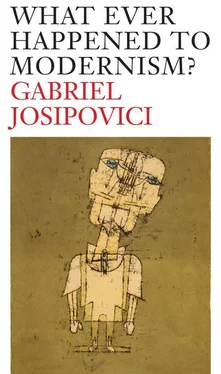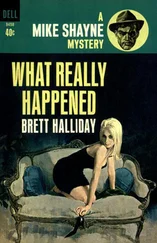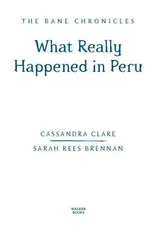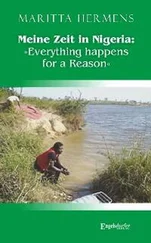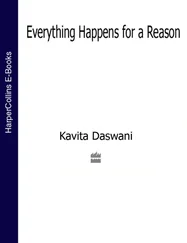In the larger economy of the book the same principle is at work: instead of trying to persuade us of his omniscience as an author — who would, after all, only be a version of Picrochole — Rabelais puts before us a fictional author who is shown to us in all his fleshly weakness, thereby stressing rather than denying that he, the real author, is a man not essentially different from his readers — not an angel or a prophet or the custodian of tradition like St Jerome. In this way he creates a space for fiction based not on denial or repression but on open acknowledgement of the way things are. Thus in the Prologue to Gargantua he tells us that ‘in the composing of this lordly book, I never lost nor bestowed any more, nor any other time then what was appointed to serve me for taking my bodily reflection, that is, whil'st I was eating and drinking’; and in the last chapter of Pantagruel (1532) he decides abruptly to bring his chronicle to a close because ‘my head aches a little, and I perceive that the Registers of my braine are somewhat jumbled and disordered with this septembral juice’. Of course nothing tells us that this is how the real Rabelais felt, but we sense that he felt more like that than like Picrochole or Dürer's St Jerome: felt, that is, more as we would feel were we to try and write a book without any guide other than our imaginations.
Cervantes too opens his encyclopaedic prose narrative, the first part of which was published in 1607 and the second in 1616, by insisting on the purely arbitrary and private nature of his creation:
Idle reader, without my swearing to it, you can believe that I would like this book, the child of my understanding, to be the most beautiful, the most brilliant and the most discreet, that anyone could imagine. But I have not been able to contravene the natural order; in it like begets like. And so what could my barren and poorly cultivated wits beget but the history of a child who is dry, withered, capricious, and filled with inconstant thoughts never imagined by anyone else.
Cervantes' reader is idle, desocupado , one who is not occupied, has nothing better to do. Unlike the listener to Homer or the reader of Dante, who listens or reads so as to have reaffirmed the order of things, how things are , this reader is imagined as turning the pages of a printed book in the solitude of his or her own room, simply in order to pass the time. And the author too, though he would like to be the inspired spokesman of the community, recognises that he is only a solitary individual, ‘filled with inconstant thoughts never imagined by anyone else’, and therefore with no authority for what he says and no access to the truth or to a Muse who would herself have access to it. In such a situation the worst possible thing would be to imagine or pretend that he did; his only hope is to accept that this is the way things are and to make the best of them. In that way, perhaps, he may become the spokesman for a new community of solitary individuals.
Cervantes explains to the reader that he wished to offer him a prologue that would be ‘plain, bare, unadorned by … the endless catalogue of sonnets, epigrams, and laudatory poems that are usually placed at the beginning of books’. Yet even something as simple as this seemed to be beyond him, he confesses, as though once the dead wood of convention had been banished there was actually nothing at all to put in its place:
I picked up my pen many times to write it, and many times I put it down again because I did not know what to write; and once, when I was baffled, with the paper in front of me, my pen behind my ear, my elbow propped on the writing table, and my cheek resting on my hand, pondering what I would say, a friend of mine, who is witty and wise, unexpectedly came in and seeing me so perplexed asked the reason, and I hid nothing from him and said I was thinking about the prologue I had to write for the history of Don Quixote, and the problem was that I did not want to write it yet did not want to bring to light the deeds of so noble a knight without one.
The contrast seems to be between a traditional florid, mendacious prologue, full of rhetoric and bearing no relation to the subject in hand, and one which is completely true to it. But what appears to happen is that if you banish the traditional preface you are left not with the truth but with nothing. Robbed of his traditional rhetoric, the writer too finds himself desocupado , without an occupation, uncomfortably aware of his body precisely because he is thrown back on himself and his private resources. This, at least is what the Prologue shows. But what it does is something quite different. For all this talk of being unable to say anything in effect constitutes a new kind of prologue, which is at one and the same time an examination of the absurdity of all prologues, a cry for help, a plea for understanding, and an unusual but effective way of starting an unusual book.
What happens when the story proper gets under way? At first all seems to be well, if by well we mean that at last the story proceeds as we expect stories to proceed. ‘Somewhere in La Mancha’, the book begins, like many a respectable and self-respecting novel, and though the next phrase is a little odd, we skim over it and find ourselves where we want to be, in the midst of a life and a world that are not our own:
Somewhere in La Mancha, in a place whose name I do not care to remember, a gentleman lived not long ago, one of those who has a lance and ancient shield on a shelf and keeps a skinny nag and a greyhound for racing. An occasional stew, beef more often than lamb, hash most nights, eggs and abstinence on Sundays, lentils on Fridays, sometimes squab as a treat on Sundays — these consumed three-fourths of his income. The rest went for a light woolen tunic and velvet breeches and hose of the same material for feast days, while weekdays were honored with dun-colored coarse cloth. He had a housekeeper past forty, a niece not yet twenty, and a man-of-all-work who did everything from saddling the horse to pruning the trees. Our gentleman was approximately fifty years old; his complexion was weathered, his flesh scrawny, his face gaunt, and he was a very early riser and a great lover of the hunt.
Suddenly, though, a new note is struck:
Some claim that his family name was Quixada, or Quexada, for there is a certain amount of disagreement among the authors who write of this matter, although reliable conjecture seems to indicate that his name was Quexana, but this does not matter very much to our story; in its telling there is absolutely no deviation from the truth.
Instead of happily entering into another world we are suddenly made to face up to the fact that this world comes to us filtered through ‘the authors who write of this matter’, and this intrusion of scholarly precision, far from reassuring us, only serves to fuel our anxieties. We did not open the book to be faced with this but to be swept away by a story where questions of accuracy would be suspended. For the duration of the story, at least, we wanted to be able to have total confidence in the narrator and not to have to think about whether he was, like Homer, privy to the Muses or not.
Yet we read on and are soon reassured: the phrase ‘our story’ suggests a tale honed by tradition, one belonging not to a single author but to a community, and even if we know that what we are reading is not an aural narrative told by the village story-teller but a tale invented for our delectation by one man, we find reassurance in that first person plural. Yet the bland conclusion, that ‘in its telling there is absolutely no deviation from the truth’, far from reassuring us, only raises questions about the confidence we can place in this narrator who at one and the same time tells us he ‘does not care to remember’ where exactly his hero came from, that he isn't sure of his name, and that his story is true in every respect. What, we wonder, can he possibly mean by truth?
Читать дальше
